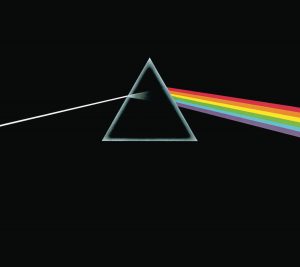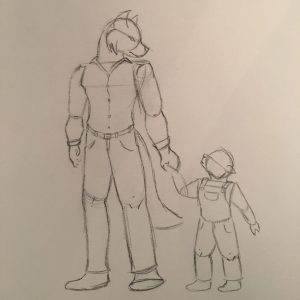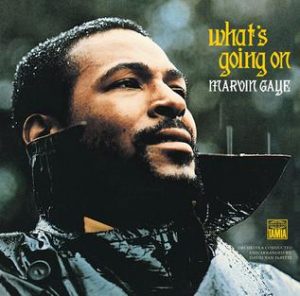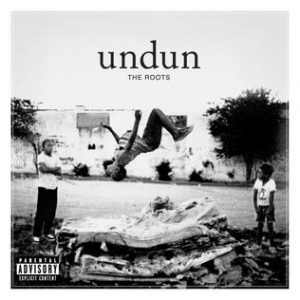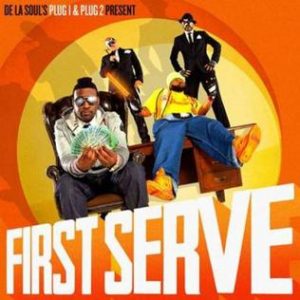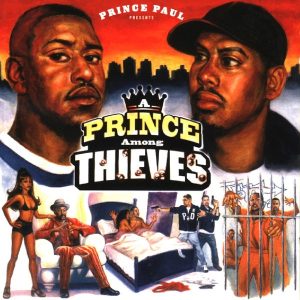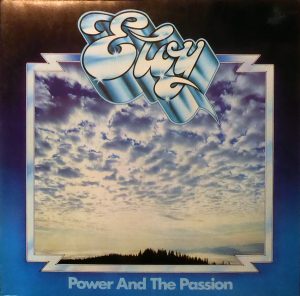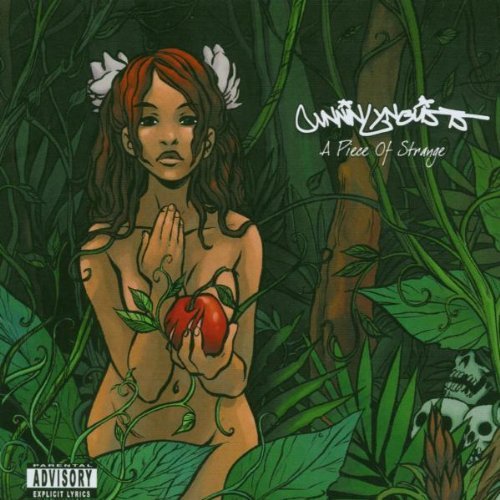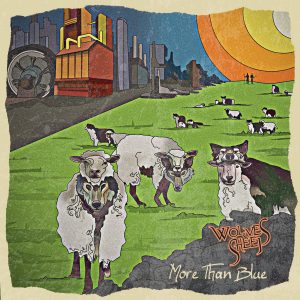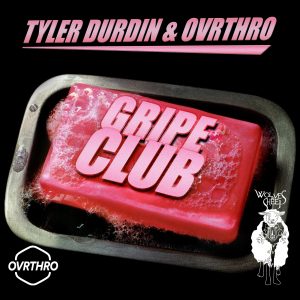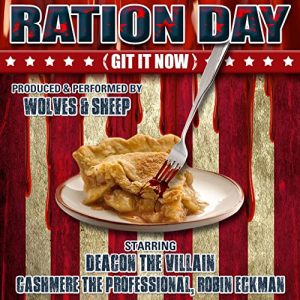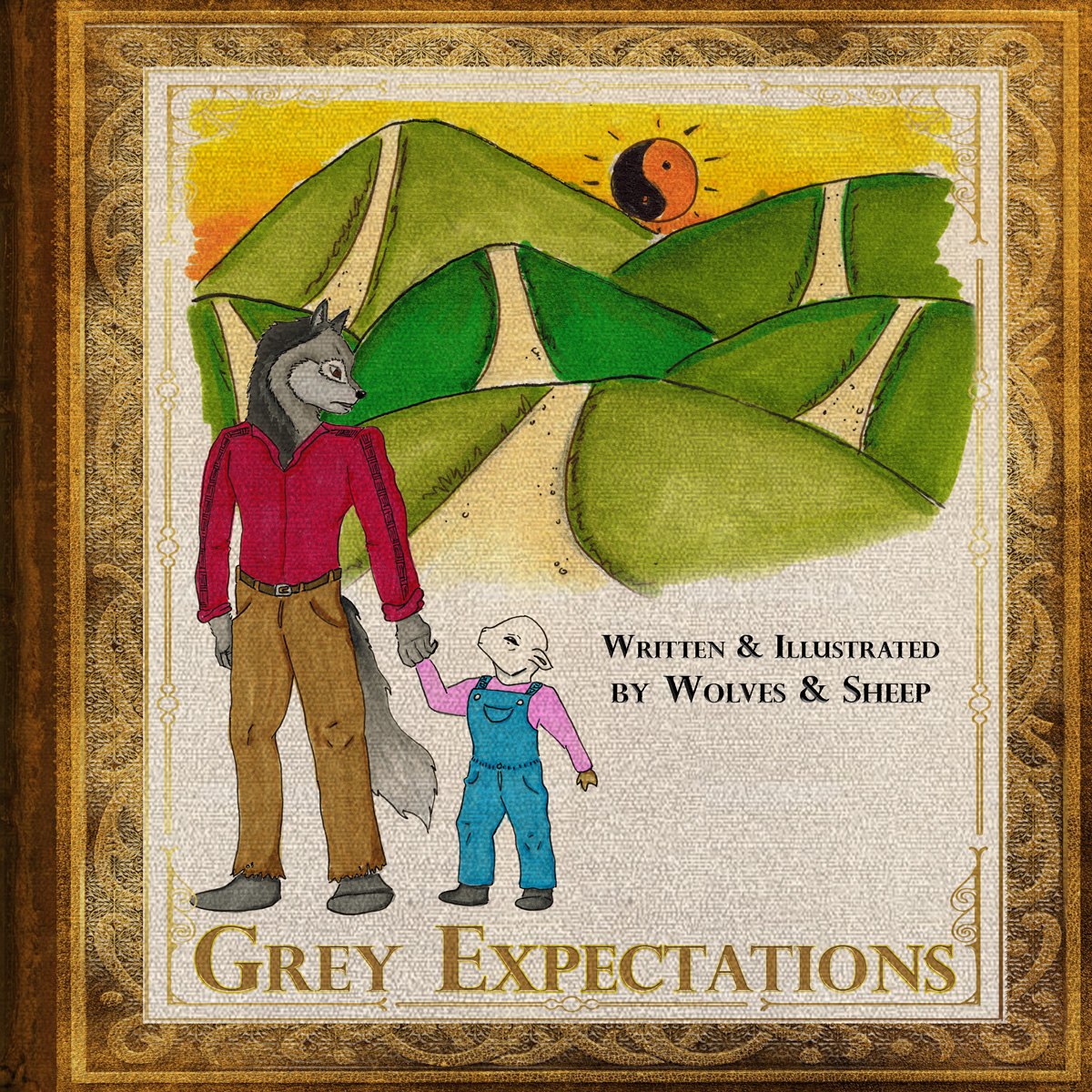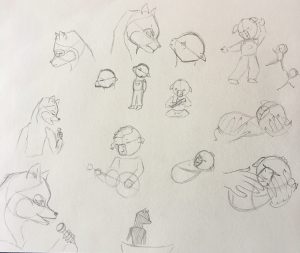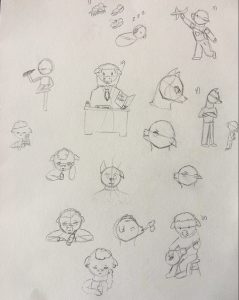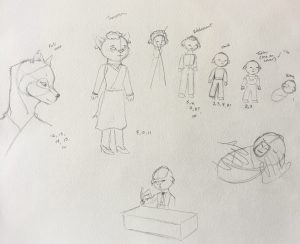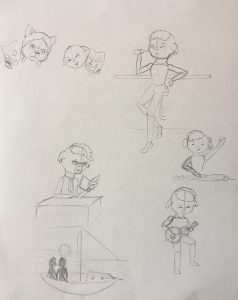Grey Expectations
Classic Rock concept albums. A Hip Hop Tribute.
Tyler Durdin's
10 Best Concept Albums
10. In Search of the Lost Chord
- The Moody Blues
9. I Robot
- The Alan Parsons Project
8. Animals
- Pink Floyd
7. American Gangster
- Jay Z
6. Wish You Were Here
- Pink Floyd
5. Tommy
- The Who
4. Mothership Connection
- Parliament
3. What's Going On
- Marvin Gaye
2. undun
- The Roots
1. Dark Side of the Moon
- Pink Floyd
If you traveled this far, you’re probably here to learn more about the Wolves & Sheep album “Grey Expectations,” our tribute to classic rock concept albums. Let’s start by explaining the term concept album for all the newbies.
A concept album is *get ready!* an album with a concept. These conceptual albums grew to prominence during the classic rock era of the 60s and 70s and became a key piece of the classic rock movement.
Many of these classic rock concept albums have become some of the best selling albums of all time, and for good reason. A concept album is a story told through music, where each song is carefully crafted to tell a part of the interlocking story. Think of the album as a book, and each song is a chapter.
“Grey Expectations” follows several characters as they embark on a journey that many of us have already traveled. It’s a story told through the eyes of dreamers and deep thinkers as they attempt to unravel earth’s mysteries and break free of the prisons that have poisoned their minds. It is a story of confusion, failure, and redemption, and one that will resonate with all artists, musicians, free spirits, and anyone who dares to dream.
Chapter 1: My Fascination with Classic Rock Concept Albums
In order to explain the concept of “Grey Expectations,” we have to start by taking a phone booth back to 1996. It was spring of my freshman year and my roommate John was a huge Pink Floyd fan. John was a freakin trip. There were these handwritten signs hanging outside our dorm room. He wrote Juan on the back of the sign and would flip it from John to Juan when he was high so if people came looking for him, they’d know he was baked wandering around “the circle of trees.” (s/o Hanson)
Pretty sure that sign said John like once a month when he was too hungover to find some trees.
But I digress. Juan liked pot and Pink Floyd. My dad played Floyd for me when I was younger, but it had been a long time. I was listening to rap in middle school and a lot of my dad’s music began to blend together. I doubt I would’ve grasped or appreciated the content in those classic rock and R&B concept albums when I was in my youth, but in college (the “real” world if you will) I started to view the world through a different lens. Those old albums of my dad’s that bored me to death suddenly had new meaning and I appreciated what went into the music because… I was a musician.
One night Juan brings a few folks into our 4×4 double-bunk room and says they’re gonna listen to “Dark Side of the Moon.” I still hadn’t so much as taken a drag off a joint at that time in my life. It would be two years later before I ever smoked “tired.”
Perhaps it was a bit of the contact high and too much Southern Comfort, but I finally “heard” “The Dark Side of the Moon”. As Wesley Snipes alludes to in “White Men Can’t Jump,” I was listening, but I wasn’t hearing “Dark Side of the Moon.” It blew me away. I began listening to more Pink Floyd, Prince, Zeppelin, Allman Brothers, Parliament, Fleetwood Mac, Marvin Gaye, Motown, etc. etc. I listened to everything, but it was the classic rock concept albums of the 60s, 70s, and 80s that spoke to me the most.
For the next 20 years, I listened to these albums REPEATEDLY. They never grew boring. I would hear an album cut on the radio and get pissed when the next song on the radio wasn’t the next song on the LP. My love of the concept album was bordering on addiction, and I needed “just a little pin prick.” Nod if you can hear me. 😉
The History of the Hip Hop Concept Album
Classic Rock Concept Albums
HONORABLE MENTION
The Wall
Pink Floyd
Operation: Mind Crime
Queensryche
Songs For The Deaf
Queens of the Stone Age
Sgt. P Lonely Hearts Club Band
The Beatles
Joe's Garage
Frank Zappa
Quadrophenia
The Who
Lamb Lies Down on Broadway
Genesis
Pet Sounds
The Beach Boys
Chapter 2: The Birth of the Hip Hop Concept Album
Hip Hop or Rap, or whatever the hell you wanna call it these days, was relatively new when I was growing up. The early 90s sparked a creative advancement in hip hop content and production, but it would still be a few years before hip hop enthusiasts would get their first concept album.
In 1996, Kool Keith released the first hip hop concept album “Dr. Octagonecologyst” under the alter-ego Dr. Octagon. There’s some debate regarding the first classic rock concept album, but as far as hip hop is concerned, there’s no discussion. Dr. Octagonecologyst (say that 10 times fast in public) is the first hip hop concept album.
To be perfectly honest, I’m not a huge fan of this album. It’s bizarre, and that’s putting it mildly. The best way I can describe it is by calling it a sci-fi porno flick set to industrial rock hop. The album follows Dr. Octagon, an extraterrestrial, time-traveling gynecologist from Jupiter. As the album progresses, we learn more about Dr. Octagon’s backstory. The concept itself is pretty brilliant, but it’s not executed very well. It’s clear that the album has a theme, but the story is tied together by the skits more than the songs.
There have been a number of hip hop concept albums released since then, and most of them have done a much better job telling a complete story. Check out the Hip Hop Concept Albums sidebar on the right (below on mobile) for some of my favorites.
I can’t dive into all of them now, but there are two in particular I’d like to mention because they influenced our approach to “Grey Expectations.” The Roots “undun” and Cunninlynguists “A Piece of Strange”. If you haven’t checked out either of these albums, I suggest you do. I’ll discuss these albums in a future blog post.
Tyler Durdin's Favorite
Hip Hop Concept Albums
Disposable Arts
Masta Ace
A Long Hot Summer
Masta Ace
Good kid, m.A.A.d. city
Kendrick Lamar
A Piece of Strange
Cunninlynguists
Street Cinema
Sporty Thievz
First Serve
Plug 1 & Plug 2
to be continued...
Chapter 3: The Concept Behind the Concept Album
Well what does all that have to do with “Grey Expectations” you ask? A great deal actually. But before I address the concept of the album, I need to provide some context, starting with a brief history of my musical endeavors.
I started writing poems and lyrics when I was a kid. I always wanted to be a writer. I played trumpet starting in 3rd grade up until I graduated high school, so I had some musical knowledge, but I wasn’t this incredible musician.
When rap music hit the mainstream, I began turning my poems into rap lyrics. In college, I met another student named Brandon who was a bit of an aspiring rapper. We started writing lyrics together and eventually recorded some of these verses over instrumentals.
Soon after, I bought a Korg Trinity and a drum machine so I could make my own beats. Initially I would pay for studio time to record these songs, which were pretty freakin awful, but as technology advanced, I realized I could record and mix my own songs with the right equipment. I started with a 4-track and eventually upgraded to a PC.
Brandon and I recorded a bunch of songs, but we ended up going our separate ways. Not long after I put together an LP called “Mind State” and released it locally. I also met a lot of the local emcees through open mics, rap battles, and the Bruce Banner radio show. This is also how I met Wolves & Sheep member Atlas, who went by Leffield at the time. We’ve stayed friends for over 20 years.
In 2000, I moved to Atlanta and linked up with Kno from Cunninlynguists and Cashmere The PROfessional, both of whom I had met online via hip hop forums. Kno was in the process of moving at the time. My brother, our friend Matt, and I were also looking for a new place and invited Kno to live with us.
We ended up moving into a house in Rex, GA but the house was sold in a month and we found another place about 4 houses down. We actually carried everything including furniture down the street to the new place.
Kno lived with us for over a year so I got to see him in action and learned quite a bit during this time. During this time, he was producing songs for what would become the group’s second LP, “Southernunderground”. S.O.S. had just joined the group and he ended up moving in with us as well. Almost every day beats were getting made or someone was recording vocals.
Kno also began working on production for a solo Cash The PRO album. Cash and I had become good friends by then and he was at our place regularly, recording tracks with Kno and just chillin. The Kno produced Cash album was never released due to record label issues with, but Cash and I had started working on our own music under the band name Grey. It may have been Gray. Neither of us can remember.
I was in Atlanta for about 3 years before I moved back to Rochester. The Grey album was being produced by my friend Rudeboy. We recorded about 10 songs, but Rudeboy—who was a bit older than us—was fighting a battle that ironically many of us have experienced recently. He was struggling to find a balance between music and real life, and what often happens in these situations is we realize there’s not enough time to both. Real life and family priorities take precedence over our passions, dreams, and hobbies.
Rudeboy basically just vanished and the album was never completed. It took several years, but eventually Rudeboy apologized for flaking on us and til this day he still regrets not finishing the project.
The failed Grey project was the straw that broke the camel’s back. I was living with a new girlfriend at the time and without Cash in close proximity, music became an afterthought. I was in my late 20s at the time and although I would still write lyrics and record the occasional song, I had pretty much given up on my musical endeavors.
Cash was in the same boat but he still hadn’t given up on his dream and released a couple albums including the “4 The Sidewalks” mixtape.
I didn’t even think about making music again until 2014 when I was working on sports magazines for Engaged Enthusiast. I was living in Annapolis, MD at the time and Cash had moved to Delaware and was only an hour and a half away. He was working on a project based on Homer’s “Odyssey” and I was occasionally working on some beats for his project.
Tyler Durdin's Favorite
Hip Hop Concept Albums
Disposable Arts
Masta Ace
A Long Hot Summer
Masta Ace
Good kid, m.A.A.d. city
Kendrick Lamar
A Piece of Strange
Cunninlynguists
Street Cinema
Sporty Thievz
First Serve
Plug 1 & Plug 2
to be continued...
Chapter 4: The Rebirth and Formation of Wolves & Sheep
My editor for one of the magazines was Ben Oh. Ben lived in Austin, TX so we were communicating via email and phone. One day he said he was working on music. I asked him some questions, told him I used to rap and make beats and he asked me to send some stuff. I obliged and he was really enthusiastic about what he heard.
Ben then asked me if I was interested in recording an album with him and without hesitation I said… “hell nah.” I assumed he was gonna send me some beats and just the thought of wasting time writing and recording an album that may never get released made me ill. I was also in my late 30s at the time and hip hop is a young folks’ game. No one gives a fuck about a 37 year-old white rapper.
But to my surprise, Ben didn’t send me beats. He sent intricately produced demos with live instruments. These tracks were a combination of rock & roll, funk, and R&B, and nothing like what I was expecting.
Ben said he was going to record everything in studio with session musicians and singers, and I felt that the live music elements combined with rap was very intriguing. It challenged me to write differently than I had in the past and pushed me to come up with new deliveries over a wide range of BPMs. I also felt my age wasn’t really an issue since it wasn’t traditional rap music.
Ben and I formed the band Wolves & Sheep and released our first album “More Than Blue”. It was a good album but once we finished and released it, Ben lost his job and suddenly all the marketing fell on my shoulders. We started arguing about marketing ideas and he was pretty much checked out by this time.
We had started working on a new project, but his time was limited so I ended up taking over production duties. I started piecing together a band using musicians I had met in Annapolis including Joe Martin, Kit Whitacre, and Robin Eckman. I also met Tony Quintero through another friend and found out he played guitar and bass. Not long after we started linking up on the weekends to record some stuff that would become the backbone of the “Grey Expectations” album.
Chapter 5: Internal Conflict Gets the Best of Me
I utilized many of those guys during this period and produced several songs including “Ration Day” featuring Cunninlynguists member Deacon The Villain, “DKMA” by First Responders, and “Take It Back” featuring Zero Basement, Ardamus, Cash, Atlas, and Robin Eckman on drums.
Unfortunately, I was also dealing with a great deal of internal conflict with regard to the time I was spending on music and quantifiable results. I was recording weekly Freestyle Fridays, releasing official videos with the aid of Christian Smooth, and dumping money into YouTube advertising. Everyone loved the Freestyle Fridays and the videos, but no one was buying the music and the stream tallies were less than desired.
Alex was pregnant with Kai at the time and I was burned out, and to be honest, I was pretty deflated by the financial return. I felt that people just wanted free entertainment. They’d pay $8 for a cup of Starbucks coffee, but wouldn’t spend $1 on a song, especially when they could get a free, 3-minute Freestyle Friday every week.
I decided at that time that I was done making music. It wasn’t worth the effort anymore and my priorities were about to change. Little did I know that this decision would be the catalyst for “Grey Expectations.”
Chapter 6: What were you Expecting? Fairy Tales and Happy Endings?
For 3 months I didn’t think about recording music. Friends would ask me about it and I would tell them I was retired. But once a musician… always a musician. I would occasionally feel inspired to write a new song or hear a melody in my head.
I also started reflecting on my decisions, analyzing where things went wrong, and questioning the things that I learned as a child, including organized religion and the way the world works.
I realized that the source of my conflict was “expectations.” Whether or not these expectations were real or perceived became an obsession. I tried to determine what inspired me to start making music and what my goal was at the time. Was it because I enjoyed it, or was it because I thought I could get rich doing it?
The conclusion I came to is that I never wanted to get rich. Most of my good friends are musicians and artists. I gravitate toward creatives and free thinkers. I feel comfortable with these folks and they bring out the best in me.
At my core, I’m an artist, and I can express my thoughts best through writing and music. But I never had expectations when I started. Expectations are a result of pressure from the outside world. Eventually, society’s expectations and the expectations of those around us become our own expectations…. not by choice, but by osmosis and brain rewiring. Our survival instincts kick in and we feel that everything we do that takes a certain amount of time and money needs to yield a financial return.
This premise is the central theme of our concept album “Grey Expectations.” It’s this inner conflict that anyone who cares to dream has struggled with, and the seeds of that conflict are implanted in us at a very young age.
I realized that this was the same battle many of the other band members were dealing with. Cash had pretty much retired by this point, Tony enjoyed playing guitar and recording but didn’t want to deal with any of the marketing-related work (I don’t blame him), and Robin quit playing drums so many times I’ve lost count.
Out of all the band members, Robin’s conflict was the most visible, and he was vocal about it, but in a way that emphasized the emotional shame spiral that resulted in frequent bouts with depression.
He would say he was a “hack” or “I’m just not that good.” If he sucked at drums, this would’ve been a case of self awareness, but anyone who knows Robin and has seen him play knows that he’s an extraordinary talent. Other area musicians would tell me constantly that he was the best drummer they’d ever seen. It wasn’t just one or two people, it was damn near EVERYBODY!
It occurred to me that he would say these things as a way to convince himself to quit playing. It was his way of “laying it to rest.” It was also his way of rationalizing why he’d failed.
Failure of course is relative. He hadn’t failed at anything. Neither had I. The only thing we failed at was monetizing our gifts. Of course that failure seems very real when you’re trying to justify to your family the need to spend time and money on things that don’t yield capital. That failure seems real when everyone who hears your music asks you “when are you going to blow up?” Then there’s the constant unsolicited advice. “Oh, you should do this or that.” “Why don’t you try this.” “If you wanna get big, this is all you gotta do.” “My cousin’s girlfriend’s best friend’s uncle is a producer.” Etc etc.
I absolutely loathe when people do this. These conversations seem to drag on forever and I can guarantee you that at this point in our careers, no one is telling us something we don’t already know or something that we haven’t done a million times. They think they have the answer to something that was never part of our initial thought process until we’ve been bombarded by constant pressure.
Chapter 7: Pressure Creates Diamonds and Leads to Depression
One thing that I find so interesting about this pressure to “conform” is how this conflict becomes part of our reality as we grow older. As kids, adults tell us we can be anything we want to be. We can be an astronaut or president or an NBA All-Star. They have no problem filling our heads with these grandiose ideas at an age when we’re very susceptible to brain washing. This is covered in our song “Limitless”.
We’re also exposed to organized religion at a young age and grow up believing that people are inherently good and that we’ll be rewarded here on earth (and in a hypothetical afterlife) if we follow God’s rules. We grow up accepting that things are exactly as they’ve been explained to us. This is covered in “Love & Hate,” “Crossroads P 1,” and “Heaven” on our album, as well as many others.
Where all that begins to fall apart is when we graduate high school and suddenly all that “you can be whatever you want to be” goes out the window. Suddenly dreams are a fantasy. Instead, we’re told we need to go to college or get a job that pays our health insurance. “Stop playing that guitar and be a productive part of society!”
It’s like… where the fuck did this come from? Hell, six years ago you were telling me I could be a rock star or own my own landscaping business and now you want me to sit behind a desk staring at a computer screen for $30,000 a year.
And here we are… 20+ years later, at our second Crossroads, wondering if we should give up on our dreams or give them one last push. For those of us who jumped into the corporate pool, our second encounter at the Crossroads may cause us to regret abandoning our dreams in favor of stability.
Chapter 8: That’s Why I Paint My Expectations Grey
I know it’s taken a while to get to the actual album concept, but sometimes you gotta plow through some mud to get to the beach.
The break I took from music made me realize that all these “expectations” were responsible for my internal conflict. I had gone from making music because I enjoyed it, to making music with a quantifiable result in mind. It was a goal that was nearly impossible to achieve, and required resources that I didn’t have.
About this same time, Alex accepted a job in Madison, WI. I knew we were moving and I was upset that I had finally put together this band with all the right pieces. Alex and Kai would be moving to Madison months before I would leave. In the meantime, I had to get the house ready for the market.
I decided that I wanted to write and produce one last album… an album that reminded me of my favorite classic rock and hip hop concept albums. I wanted to tell a story in chronological order that addressed all these questions and conflicts that had taken its toll on myself, my band mates, and many other artists, entrepreneurs, and dreamers who had expressed similar feelings.
I came to the conclusion that in order to dedicate time and money to this project, I had to “let go.” I needed to rid myself of any expectations. I had also become disillusioned with the world around me. Expectations were a regular part of my day. I “expected” people to behave a certain way. I “expected” results that reflected the time and money I had put into each project. I “expected” people to not be assholes and to do the right thing. I “expected” people to buy the music.
I had pretty much set myself up to be disappointed and failure was inevitable since I was expecting results that were out of my control, and I was too caught up in the minutia to realize the damage it was causing my mental state. I needed to come to peace with the fact that almost everything was out of my hands. I couldn’t change the world. I couldn’t do anything about the divisiveness that was leading to more chaos. The only thing I could do was change myself.
In other words, I painted my expectations grey. It may sound sad, but I basically concluded that the best way to proceed was to not expect a damn thing… from anybody. I wasn’t giving up, but I certainly wasn’t going to waste time working toward goals that required assistance from the outside world for completion.
I was going to produce the album I had always wanted to make, and I didn’t care if anyone listened to it. My only goal was to complete it. Anything after that was a bonus.
But it’s funny how goals change. Whether it was a case of life imitating art, or art imitating life, the band and I were still struggling with our demons during the recording process. Robin nearly didn’t finish playing drums on the remaining songs due to tendinitis. Although the pain was real, I think it was 50% physical and 50% mental, and he’d likely agree with me. I basically Jedi mind tricked him into completing the project, and we’re all extremely glad he did. It wouldn’t have been even close to the same album without his contributions. But that’s a story for another day.
As the album progressed, those expectations reappeared. I knew it was special and everyone involved in it knew it was special. Suddenly it wasn’t just about making the album.. it was about the potential results.
If the album sucked, it would’ve been much easier to ignore its potential. But it was really good and we all wanted people to hear it. We planned on releasing it in March of 2020. Then Covid happened. I was spending time and money on marketing but we were nowhere close to completion and some of the songs like “Bill Burr” weren’t getting the results I wanted. It was as if I’d learned nothing. Those expectations were back and they certainly weren’t grey. They were every color of the rainbow and I was the one painted grey.
I initially planned to spend the spring and summer working on a documentary and a variety of additional marketing items, but overnight all that changed. Suddenly I was watching Kai all day at home while Alex was working and we both were doing our best to keep her entertained and educated. I could barely keep up with her, let alone focus on marketing prep work when the album wasn’t even close to being mastered.
Social media was becoming too much to handle and I had lost complete control of the mixing process. Ryan (DJ Silent Beard) was also overwhelmed due to changes brought on by the coronavirus. It seemed like everything had been upended, and once again I needed to reset.
It made me realize that no matter how much we think we’ve come to peace with something, it’s never really gone. All it takes is a little dirt for the abrasion to get re-infected.
Chapter 9: Learning to Embrace the Creative Process
Now that we’re almost done with the album, I can say that my expectations are once again grey, but this time it’s for different reasons. They’re grey because we all pushed through adversity and created something that my friend Jim Manuels referred to as “extremely ambitious.”
It took more time, money, and discussion than you can possibly imagine. Every detail was overturned and analyzed in excess. Arguments occurred. I went full “Nuke” several times. Bandmates quit, only to return after fences were mended. But all of that was necessary to get here and those moments helped us all grow, as bandmates but more importantly, as friends.
We hope that those of you who do listen to this album are inspired to not abandon your dreams, and to come to the same conclusion that we did…
It doesn’t matter what people think. It doesn’t matter if other people label you a failure because you can’t make a living doing something you’re really good at. All that matters is that you use the talents you were given to bring other people joy… and that it makes you happy.
I know that doesn’t hold much weight in today’s capitalistic machine, but I do think it plays a big part in our search for the meaning of life. Joy can’t be measured by bank account decimals, likes, and followers. But missing opportunities and looking back at our lives with regret is something we’ll carry with us to our graves. So DO IT now before it’s too late.
Art, music, and influence is the only way to extend our lives past our date of expiration. Money is nothing more than a worthless piece of paper. Good art, on the other hand, is priceless. It lives forever and has the potential to inspire people long after we’re all six feet deep. End of the day, what more can you expect out of life?
#GreyExpectations
– Tyler Durdin from Wolves & Sheep

